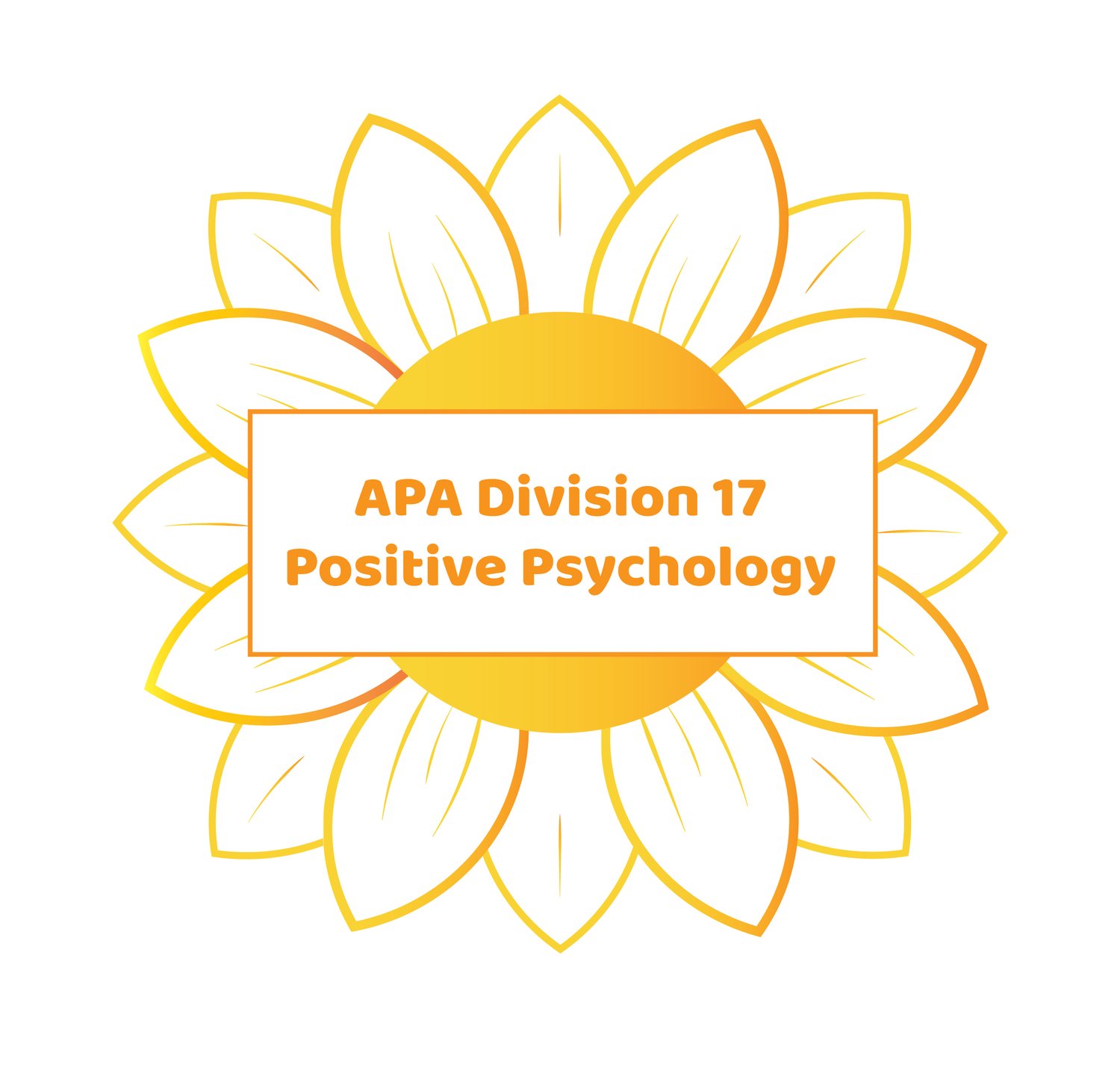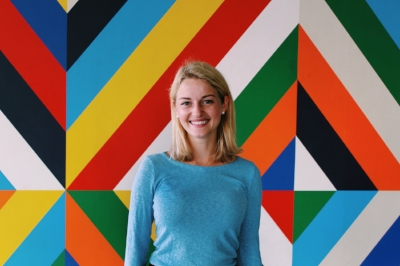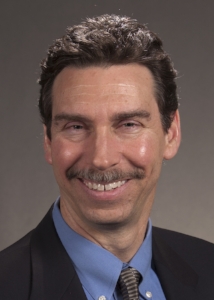Each month, the Section on Positive Psychology will interview a member about their experiences in the field of Positive Psychology.
June, 2024: Akorede Teriba, Ph.D.
What is your title/affiliation/professional role(s)?
Akorede Teriba, Ph.D. (he/him/his). I am an Assistant Professor of Counseling Psychology in the Department of Education, Health and Behavior Studies at the University of North Dakota. I am the director of the Human Flourishing Lab and currently serve as the Early Career Psychologist Representative on the Executive Committee of Division 17's Supervision and Training Section.
How did you become interested in positive psychology?
My interest in positive psychology developed out of my exposure to psychology educators during my undergraduate experience who encouraged maintaining a growth and strengths-based lens towards others and oneself. I became fascinated by the notion of helping individuals understand their potential and how to achieve their aspirations. I became particularly interested in positive psychology following my introduction to grit and subjective well-being, which was further deepened in my graduate experience.
What are your applied, research, and/or teaching interests related to positive psychology?
The positive psychology concepts I research include growth mindset, grit (perseverance and passion for long-term goals), and emotion regulation as means to increase subjective well-being. My research findings in positive psychology include relational attributes of grit and well-being, such that close relationships increase an individual’s ability to persevere and maintain passion for their aspirations, as well as includes the positive impact of representation on BIPOC individuals’ growth mindset. I engage in disability and giftedness related advocacy to increase the resources available to actualize the potential of individuals with disabilities, high ability students, and twice-exceptional students (i.e., co-occurring disability and high ability). My research in positive psychology has allowed me to be a more effective clinician and instructor of my courses, particularly my Career Counseling and Counseling Methods courses.
In what specific ways do you apply positive psychology to your personal life?
I find that working to maintain a positive psychology lens in my own life has increased my ability to reframe life events and have an appreciation for the effortfulness of others. It encourages me to be more attentive to an individual’s desire to grow and more intentional about my own growth fostering behaviors. Positive psychology provides me with motivation to continue working to see things beyond how they currently are to recognize how things can be, as well as motivates me to maintain my optimism.
May, 2024: Grazia Raineri Acosta
What is your title/affiliation/professional role(s)?
Grazia Raineri Acosta, 2nd-year doctoral student at Our Lady of the Lake University, MHFA GACoordinator, and Student Representative for Division 17 – positive psychology section
How did you become interested in positive psychology?
About 6 years ago my dad received a cancer diagnosis, he had many doubts and fears about his future and treatment outcomes. I, on the other hand, was hopeful about his recovery, so I spent time with him and incorporated positive emotions into our conversations about the present and the future. I wasn’t ignoring the reality; I was choosing to focus on the possibilities and exceptions. Witnessing the impact of hope on my father’s recovery journey was a revelation. It wasn’t just a passive feeling, instead, it was a powerful force that fueled his determination. This sparked curiosity and a desire to understand the science behind this transformative power. My quest led me to the fascinating world of positive psychology. For me, positive psychology wasn’t just about blind optimism; it was a field dedicated to studying the strengths and resources that enable people to thrive. It introduced me to the concept of hope, not as mere wishful thinking, but as a cognitive process to explore how positive emotions allow us to envision achievable goals, develop pathways to reach them and muster the willpower to persevere. Learning about these concepts and their potential to empower others facing challenges.
What are your applied, research, and/or teaching interests related to positive psychology?
My current research interest related to positive psychology is the effect of positive emotions such as hope and optimism on goal formation, goal achievement, and therapy outcomes.
In what specific ways do you apply positive psychology to your personal life?
In my personal life, positive psychology is applied in each conversation I have with people. I try to stay positive, to use my energy toward positive thoughts and emotions, and to be hopeful and joyful as much as possible because positive emotions have proven to fuel cognition and behavior with a positive impact also on the body. For example, when I see clients, I try to incorporate hope by helping them find exceptions as a problem is not present 24/7. That glimpse of hope becomes a motivation that allows them to have a more positive outlook on their life, improving their well-being and believing that life is worth living.
November 2023: Kriti Jain, M.A.
What is your title/affiliation/professional role(s)?
Kriti Jain, M.A. (she/they/any). I am a first year doctoral student in counseling psychology at the University of Tennessee, Knoxville (UTK). I conduct research on the psychological well-being of sexual, gender, and racial minority folks as part of the ReSIst lab under the mentorship of Dr. Kirsten Gonzalez. I also serve as the Justice, Equity, and Liberation co-chair within the Student Affiliates of APA Division 17 (SAS) board and the student campus representative for the positive psychology section at UTK.
2. How did you become interested in positive psychology?
During my Master’s program I took a class in positive psychology and I noticed that a lot of the research in the field centered the experiences of individuals with dominant social identities. As a queer woman of color, I wanted to know how positive psychology principles could be applied to support the well-being of individuals with marginalized identities. I think that the current dominant narrative emphasizes the negative experiences of marginalization and overlooks the ways in which LGBTQ+ and BIPOC folks can lead rich and meaningful lives. Through my research and advocacy efforts, I hope to help shift the narrative and shed light on the positive aspects of being LGBTQ+ and BIPOC. I am currently doing this by exploring community-level strengths, such as positive LGB identity, and I hope to expand this line of work to gender and racial minority populations as well.
3. What are your applied, research, and/or teaching interests related to positive psychology?
My current research interests focus on community-level strengths among sexual minority individuals. I am particularly interested in how authenticity, an aspect of positive LGB identity, can bolster the well-being of sexual minority folks. I hope to integrate anti-oppressive and non-Eurocentric perspectives into this work, such as by exploring the literature on Black psychology and radical healing, and help develop evidence-based positive interventions for those with intersecting LGBTQ+ and BIPOC identities. In addition to my research work, I also utilize positive psychology principles in my current role as an alumni wellness coach at Columbia Health. As a wellness coach, I work with clients to promote health habits that facilitate holistic well-being, such as building meaningful relationships, taking care of the body’s physical needs, and cultivating a sense of purpose. I hope to integrate such holistic and strengths-based approaches into my clinical training as well, which I will begin next year.
4. In what specific ways do you apply positive psychology to your personal life?
I am a big advocate of self-compassion, a construct I was introduced to early in my research training. Research shows that you can cultivate self-compassion when you make the conscious effort to do so, whether it’s through journaling, meditation, or self-reflection. Although I do not engage in a formal self-compassion practice, I choose to regularly remind myself, and those around me, about the importance of loving yourself unconditionally.
October 2023: Ingrid Weigold
Ingrid Weigold, Ph.D. (she/her/hers)
What is your title/affiliation/professional role(s)?
I’m a professor in the APA-accredited Counseling Psychology Program at The University of Akron. I’m also the Treasurer for this section.
How did you become interested in positive psychology?
I first became interested in positive psychology during graduate school. I attended Texas Tech, and Chris Robitschek was my advisor. She introduced me to positive psychology, as her main area of research is personal growth initiative. Now I teach about personal growth initiative to my own students!
What are your applied, research, and/or teaching interests related to positive psychology?
My main research area is in human agency, particularly personal growth initiative (no surprise there!), personal growth, and self-efficacy. I’m also interested in college and international student well-being. Finally, I’ve started moving into scale development and translation; my husband Arne (another positive psychologist!) and I developed a measure of computer self-efficacy that we’re now translating into different languages.
I also love teaching positive psychology. I teach an undergraduate course in this area, as well as teach about positive psychotherapy in group practicum supervision in my program.
In what specific ways do you apply positive psychology to your personal life?
I’m very familiar with my VIA top strengths, as I take the measure almost every year (along with my classes), and I try to incorporate those into my daily life. For example, spirituality is a big component of my life, and I complete the “3 good things” gratitude exercise every day.
Past Featured Member Spotlights
November 2022: Heidi A. Zetzer, PhD
September 2022: Robert L. Abreu, PhD
March 2022: Dr. Tom McGovern
January 2022: Anica Camela Mulzac, Psy.D.
September 2021: Ted Bartholomew, PhD
March 2021: Patrick Murphy M.S.Ed.
October 2020: Megan Foley Nicpon, PhD
September 2020: Sammi Schams, MS
August 2020: Christina Cendejas, MS
July 2020: Brandon Waits, PHD
March 2019: Paige D. Naylor, PhD
May 2018: Rhea Owens, PhD
April 2018: Nicole Gabana, PhD
March 2018: Nelson Zounlome
February 2018: Meg Boyer
January 2018: John Wade, PhD
December 2017: Richard Douglass, MS
November 2017: Marilyn Cornish, PhD
October 2017: Pauline Venieris, PhD
September 2017: Collie Conoley, PhD
Summer 2017: Katherine Moore
May 2017: Ryan M. Niemiec, Psy.D.
April 2017: Hsiu-Lan Cheng, PhD
March 2017: Mandrila Das
February 2017: Rita bender, psyD
January 2017: Vanessa Malinowski, BS
December 2016: Lisa Edwards, PhD
November 2016: Joel Wong, phd
October 2016: Hanna Suh, phd
September 2016: Ryon Mcdermott, phd
May 2016: Donnie Davis, PHD
March 2016: Hang-Shim lee, phd
February 2016: Rebecca Kinsey, MA
JANUARY 2016: BRIAN DIK, PHD
November 2015: beatriz bello, ma
October 2015: Christine robitschek, phd
September 2015: Shu-Yi Wang, MS
August 2015: Jennifer teramoto Pedrotti, phd
June 2015: Dominika Borowa, MA
May 2015: Jeana Magyar-Moe, PhD
April 2015: Blake Allan, MS
March 2015: Michael J. Scheel, PhD, ABPP




































